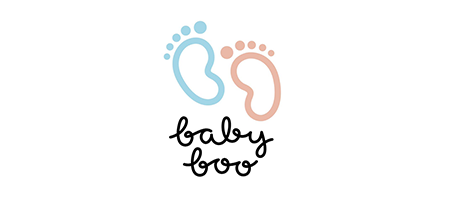Choosing to breastfeed or bottle-feed is a personal decision. It’s one of the first important decisions you’ll make as a new parent. Both have pros and cons.
Over the years, the issue has been controversial, often leading to parents feeling judged for choosing bottle-fed formula over breast milk. Don’t let the haters get you down either way.
There’s no right or wrong choice, just the healthiest choice for you and your baby. Before settling on one or the other, you’ll want to have all the facts.





If you’re unsure of how you’d like to feed your baby, read on to learn more about each method.
Breastfeeding
Trusted health organizations like the American Academy of Pediatrics (AAP) strongly recommend exclusive breastfeeding for the first 6 months and continuing after solid foods are introduced, until at least the age of 1 or longer.





The World Health Organization (WHO) recommends breastfeeding until the age of 2 or longerTrusted Source. It may sound like a long time, but there are great reasons for it.
Most experts agree that breastfeeding is the best way for newborns and infants to get nutrition and big health benefits. Starting to breastfeed within 1 hour after giving birth affords even more benefitsTrusted Source.
Pros
Breastfeeding is good for both your health and your baby’s health. Here are some of the benefits for you and your baby.
Availability
Breastfeeding is free — barring the cost of any lactation consultants and accessories like nursing bras. Pumps, bottles, formula, and other bottle-feeding products can be costly.
Breast milk doesn’t require any prep work. It’s ready when your baby is ready. Aren’t bodies amazing?
Boost for baby





Has all the nutrients: Breast milk has all the nutrients your baby needs to grow and stay healthy, including in the first few days when nutrient-rich colostrum is produced.
Promotes a healthy digestive system: Breastfed babies are less likelyTrusted Source to have diarrhea and upset stomach.
Strengthens baby’s immune system: Breast milk helps protectTrusted Source against ear infections, pneumonia, bacterial, and viral infections.
Might boost IQ: Research suggests that breastfed babies, especially exclusively breastfed babies, may have a somewhat higher IQTrusted Source than if they were formula-fed.
Prevents SIDS: Breastfeeding reduces the risk of sudden infant death syndrome (SIDS), especially exclusive breastfeeding.
Benefits preemie health: Feeding human milk to preterm infants or other medically fragile babies in the neonatal intensive care unit (NICU) lowers the ratesTrusted Source of necrotizing enterocolitis (NEC), which increases survival chances and decreases the length of NICU stays.
Lowers risk for other conditions: Breastfeeding potentially protects against conditions like asthma and allergiesTrusted Source, diabetesTrusted Source, and obesityTrusted Source.
Good for you





Helps with recovery: It can help your uterus get back to prepregnancy size faster.
May help with weight loss: Your body’s production of milk burns extra caloriesTrusted Source that can lead to weight loss. (Though not always!)
Can help you retain iron: Breastfeeding keeps your period from returning, which can prevent an iron deficiency after giving birth.
Promotes good hormones: Allows your body to release hormones (like oxytocin) that help you bond with your baby.
Lowers risk of some diseases: Reduces your risk of getting breastTrusted Source and ovarianTrusted Source cancer, heart disease, and diabetesTrusted Source.
Lowers risk of postpartum depression: A 2012 study indicated that the benefits were even greater when you breastfeed for longer than 4 monthsTrusted Source.
If you choose to breastfeed, your healthcare provider will likely recommend that you do it for as long as you’re able and still feel comfortable.
The longer you breastfeed, the greater these health benefits are for you and your baby.
Cons
Although breastfeeding is healthier and more beneficial for you and your baby, it can also come with challenges. Many of them can be overcome with the help of a lactation consultant and some perseverance.
Don’t be discouraged if it takes some time to get it right. Here are some common challenges:
You may feel discomfort, particularly during the first few days or weeks.
There isn’t a way to measure how much your baby is eating.
You’ll need to watch your medication use, caffeine, and alcohol intake. Some substances that go into your body are passed to the baby through your milk.
Newborns eat frequently. Keeping up with a feeding schedule may be difficult if you need to return to work or run errands. (Though pumping can help!).











